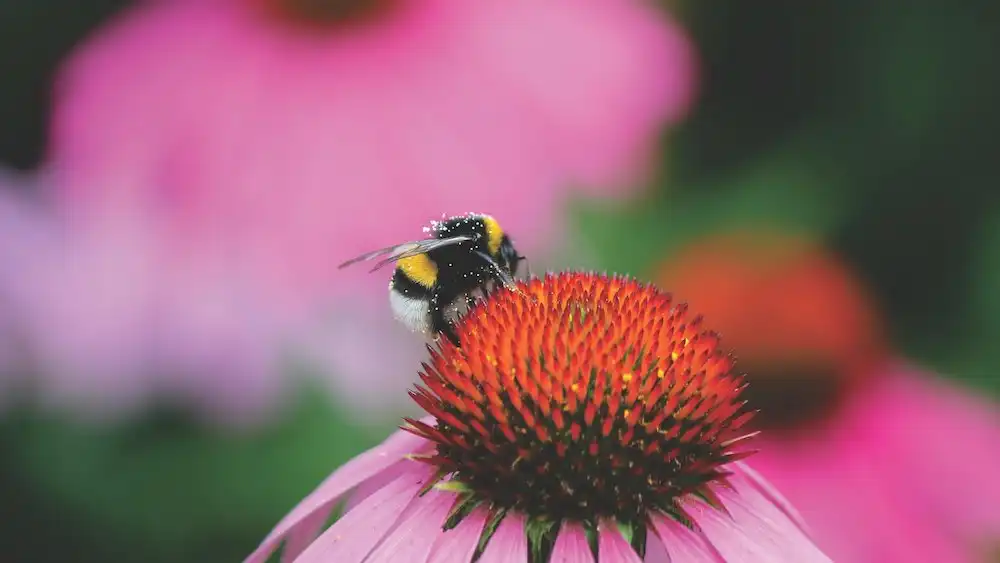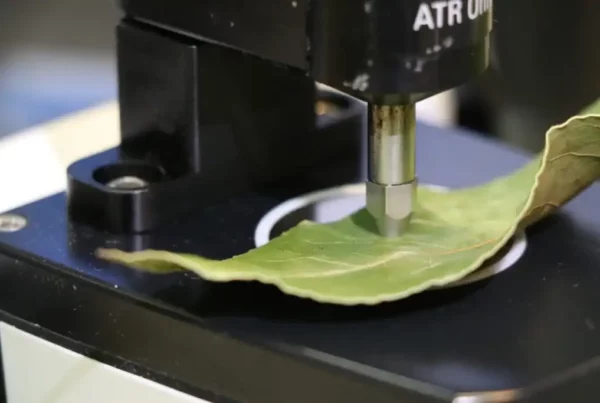The Netherlands is losing plant species that rely on pollination by insects. Leiden environmental scientist Kaixuan Pan demonstrates this after analysing 87 years of measurements from over 365,000 plots. The news is alarming for our biodiversity and food security. ‘75 per cent of our crops and 90% of the wild plants rely on insects.’
We’ve known for some time that insects in the Netherlands are in decline. ‘With this research, we show that there are also fewer and fewer plants dependent on those insects for pollination,’ explains PhD candidate Kaixuan Pan. ‘The proportion of insect-pollinated plants has declined while that of wind-pollinated plants has increased.’
Insect-pollinated plants are important for biodiversity and our food
And that’s a problem. Insect-pollinated species make up the majority of plants in the Netherlands. ‘If these plants disappear from the landscape, it not only means fewer plant species remain, but also significantly fewer seeds and fruit for birds and other animals’ says Pan. ‘In other words: a significant decrease in biodiversity.’ Additionally, these plants are plentiful on our menu. ‘75 per cent of crops are plants pollinated by insects. Losing these species would pose a threat to our food security.’
Nearly 90 years of data make this research unique
Pan’s work mainly involved analysing a vast amount of data. ‘A huge task,’ says supervisor Geert de Snoo from Leiden University and the Netherlands Institute of Ecology (NIOO-KNAW). ‘Kaixuan data mined 87 years of data collected from a staggering 365,768 plots to find as many trends and patterns as possible. We looked at different plant species but also factors like nitrogen, moisture levels, and pH, combining that with insect data. This combination, and the large time scale, make this research unique.’
‘I may have studied Dutch nature, but I mainly sat behind a computer,’ Kaixuan says jokingly. ‘Fortunately, I could occasionally help a colleague with fieldwork. Searching for bees and studying plants. A welcome variation.’
Too few insects to pollinate the plants
If the decline in insect-pollinated plant species were solely due to factors like moisture or nitrogen, wind-pollinated plants should have shown similar trends. But that wasn’t the case. Pan: ‘Within the same habitat type, under the same conditions, we often saw a greater decrease in the number of insect-pollinated species compared to wind-pollinated species. So, that difference is likely due to a lack of pollination: there are not enough pollinators left to provide these plants with sufficient pollen.’
Less nitrogen in nature helps
The scientists propose various measures to reverse the trend. Pan: ‘Think about nitrogen, which is now well-known. If we ensure that less of it ends up in nature, it can help local plants and insects.’ Pan also advocates for better protection of our natural grasslands. ‘Because they harbour many of the insect-pollinated plant species that have experienced declines in recent years.’
Supervisor Koos Biesmeijer from Leiden University and Naturalis Biodiversity Center: ‘And we must continue monitoring to see if these protection measures have the desired effect. Both on insects and plants, because they are interdependent. That way, we can learn from the past, monitor the present, and positively change the future.’
Read the paper: Journal of Applied Ecology
Article source: Leiden University
Author: Hilde Pracht
Image credit: Matthias Zomer from Pexels







